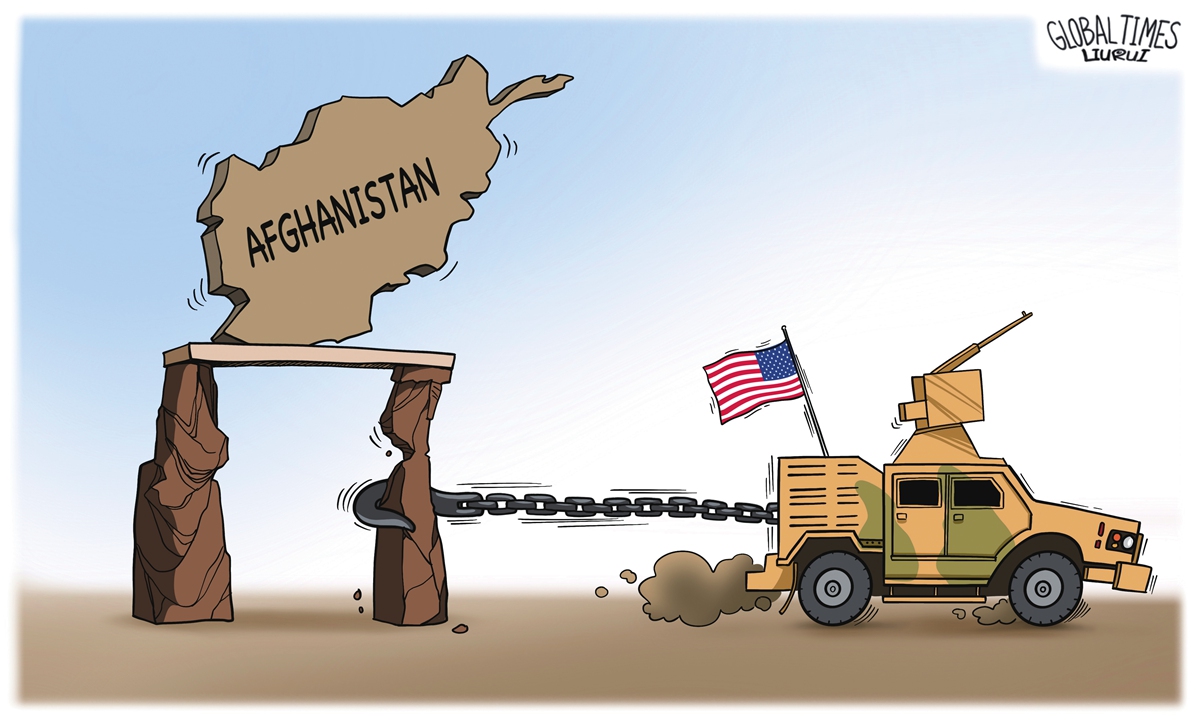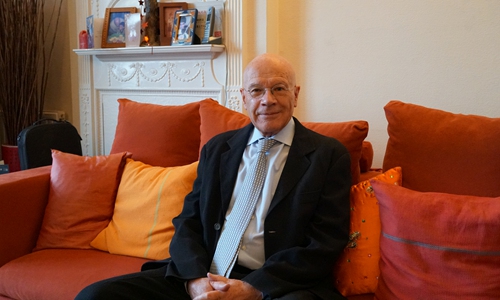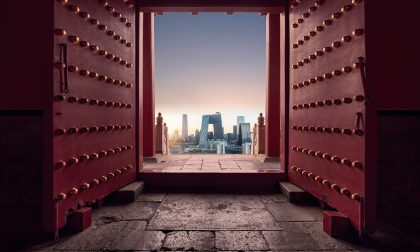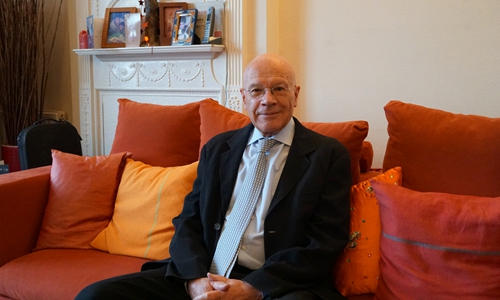The US has suffered total humiliation in Afghanistan. The US and its puppet regime had no popular support. The Taliban did. Over the last 20 years Western interventionism has been an abject failure. The US’s role as a global power will never recover from the defeats suffered in Afghanistan and Iraq, not to mention Libya and Syria. The US hugely overestimated its strength and has paid a massive price. In 2001 it believed that its unipolarity would last indefinitely and that the new century would be an American century. China, for sure, will not make the same kind of mistake in Afghanistan. It is a very different kind of power. Read more >
Read more >
China
The pandemic has played a central role in the worsening relationship between the US and China. It was Trump’s pivotal weapon in shifting US public opinion against China. As a result, in the West Covid-19 was always dominated by geo-politics rather than science. One of the best illustrations of the West’s attempts to politicise the issue has been the demand for an independent international team to be sent to China to investigate the causes and origins of the virus. It felt like a return to the nineteenth century when China enjoyed little sovereignty. Now, of course, things are very different as the West keeps discovering. Perhaps a more apposite proposal would be an international investigation into the dismal failure of the West’s handling of the pandemic…

The real test of governing systems is not their performance over a brief period like the last seventy years, but over a much longer historical period. For the last two millennia, the Chinese system of governance has been far superior to all others. The West insists that its system of democracy cannot be improved upon and is of universal application, China included. There are, however, strong reasons to believe that the future of Western democracy is far from certain. Certainly over the last four decades it has been out-performed by China’s governance.
The Chinese Communist Party is like no other party in the world. It requires us to rethink the very idea of what a political party is. The West believes the CPC is no more than a clone of the CPSU. In fact, it could hardly be more different. The CPSU was a catastrophic historical failure: the CPC is hugely successful. The former was frozen; the latter highly innovative, constantly on the move. It is deeply rooted in Chinese society, a hybrid of Chinese Marxism and Confucianism, shaped by and as complex as Chinese civilization of which it is a fundamental part.
The US-China High Level Dialogue in Anchorage was highly revealing. The strong criticisms made by Yang Jiechi and Wang Yi, in the presence of the global media, about the United States suggested a new kind of self-confidence on the part of China in its growing strength. It certainly took Blinken and Sullivan by surprise. The US message, meanwhile, is that Biden is reading from the Trump playbook on China, with a soft edge or two.
After the handover in 1997, Hong Kong was based on one country two systems. These were never equivalent: how could they be? The essence of the handover was the passing of sovereignty from the UK to China. One country took precedence: two systems was shaped by and only existed in the context of the former. The West ignored this crucial difference or, at least, greatly played down its importance and significance and, what is more, its legitimacy. Now China is reasserting the primacy of one country over two systems: the divisions which have undermined Hong Kong will be replaced by a new sense of authority and stability. But Hong Kong’s problems are not just political. The failure to tackle the socio-economic problems bequeathed by the British – an oligopolistic colonial-style economy, huge inequality and, above all, the control by tycoons of the supply of land, resulting in sky-high property prices – has understandably led to a mood of resentment and pessimism, especially among the young. Fundamental socio-economic reforms, alongside political reform, will be necessary if hearts and minds are to be won.
During January the onslaught in the Western media, notably the US and the UK, against the Chinese government’s handling of the Covid-19 epidemic, was merciless. The Chinese government stood accused of an inhumane attitude towards its people, secrecy, a cover-up, and an overwhelming concern for its own survival above all other considerations. The actual evidence was thin bordering at times on the threadbare but this made little difference to the venom and bile of the assault. Read more >

Martin Jacques Photo: Sun Wei in London/GT
1. After more than a month since the outbreak of the coronavirus in China, the epidemic has been coming under control inside the country. How do you evaluate China’s efforts in the fight against the epidemic?
Judging by the situation now, China seems to have got on top of it, with the number of new cases declining. By and large, it looks as if China has managed to restrict the worst of it to Wuhan in Hubei Province. I think that the situation is looking encouraging.
2. Some people view the epidemic as an assessment of different political systems. How do you evaluate the measures taken by different countries such as China, Japan and South Korea?
Martin Jacques assesses the role and continuing rise of China in the decade 2010 to 2019 in an article published in the Guardian on 31st December 2019.
By 2010, China was beginning to have an impact on the global consciousness in a new way. Prior to the western financial crisis, it had been seen as the new but very junior kid on the block. The financial crash changed all that. Before 2008 the conventional western wisdom had been that sooner or later China would suffer a big economic meltdown. It never did. Instead, the crisis happened in the west, with huge consequences for the latter’s stability and self-confidence.
This is the transcript of a talk Martin Jacques gave at a Forum organised by China Daily at the G20 in Osaka on 25 June 2019.
There is no point in building castles in the air. We must live in the here and now. I am sure the great majority of us wish we were not where we are. We would prefer that the era, beginning in the late 1970s, of globalisation and multilateralism, and that was characterised by relative stability and cooperation in the relationship between the US and China, was still in place. It is not. And it will not return for a very long time. The reason for the breakdown in that old order is profound, as is invariably the case with great historical shifts. We need to understand the causes. Read more >


